
Staying Up To Date
One of the most important aspects of being a software developer is staying up to date in an ever-changing environment. Although many core principles like design patterns, domain-driven design, and general system architecture persist over the years, the technologies that apply these methodologies are constantly evolving. This is especially true with JavaScript.
I’ve heard the comparison that JavaScript is the new plastic. With new frameworks seemingly popping up daily, it’s hard to keep a pulse on everything, and even harder to determine what’s relevant and what’s not.
So how do I stay current? When it comes to keeping up with new technologies, I really appreciate curated material. I prefer content gathered by trusted voices and summarized for me. This is especially true for podcasts and email newsletters. I love when the information comes to me in that form.
I’d like to share some of the resources that provide me with daily inspiration, knowledge, and value. Hopefully, you’ll find them just as helpful as I do.
Chris Ferdinandi - Go Make Things
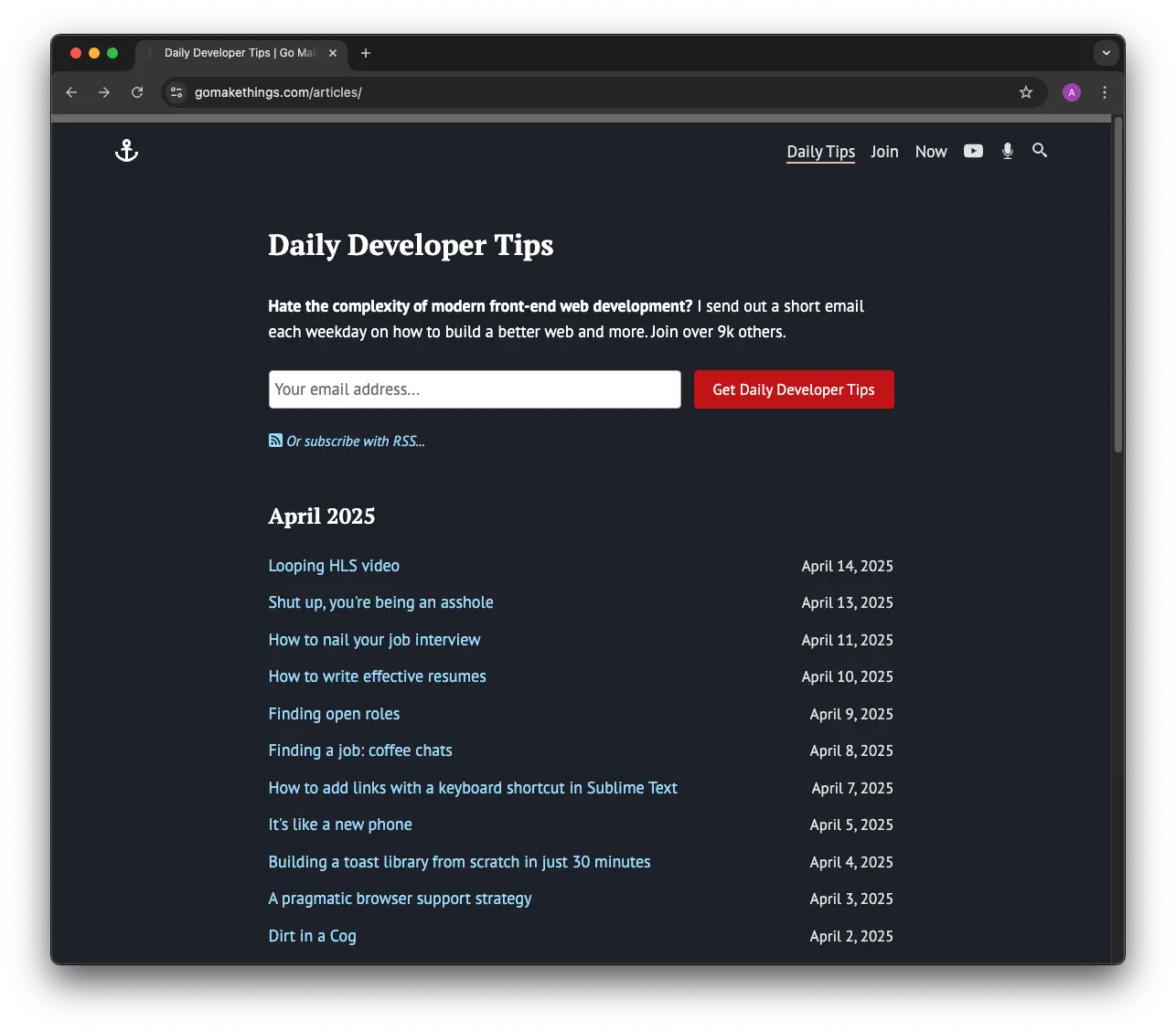
The first email newsletter I want to share is a bit different from the rest. I started out talking about how JavaScript is always evolving and often referred to as the “new plastic,” but Chris Ferdinandi offers a refreshing and unique perspective in today’s fast-moving tech world.
Chris is a purist who writes extensively about the lean web. He prefers to avoid frameworks and is a strong advocate for using vanilla JavaScript. He focuses on leveraging the browser’s built-in capabilities, writing accessible and clean CSS, and building fast, lightweight websites that work well for people across the globe.
I really appreciate this mindset. I can’t count how many personal and work projects rely on npm libraries that quickly become outdated, turning into a major hassle to maintain. Chris’s approach of building apps using native browser features and minimal dependencies makes his work feel future-proof and reliable.
There’s something beautiful about that simplicity. You rarely see developers building apps without relying on popular libraries the way Chris does. I also love how seriously he considers the size of libraries and how they affect users with slower internet connections. Some people might shrug off a 42-kilobyte React bundle as insignificant, but for many users in other parts of the world, that can create real issues.
Chris genuinely thinks about everyone, people with limited bandwidth, people with disabilities, and users on all kinds of devices. His perspective has influenced the way I think about development. It reminds me to slow down, look at what the browser already provides, and consider whether I really need that extra npm package.
JavaScript Bytes
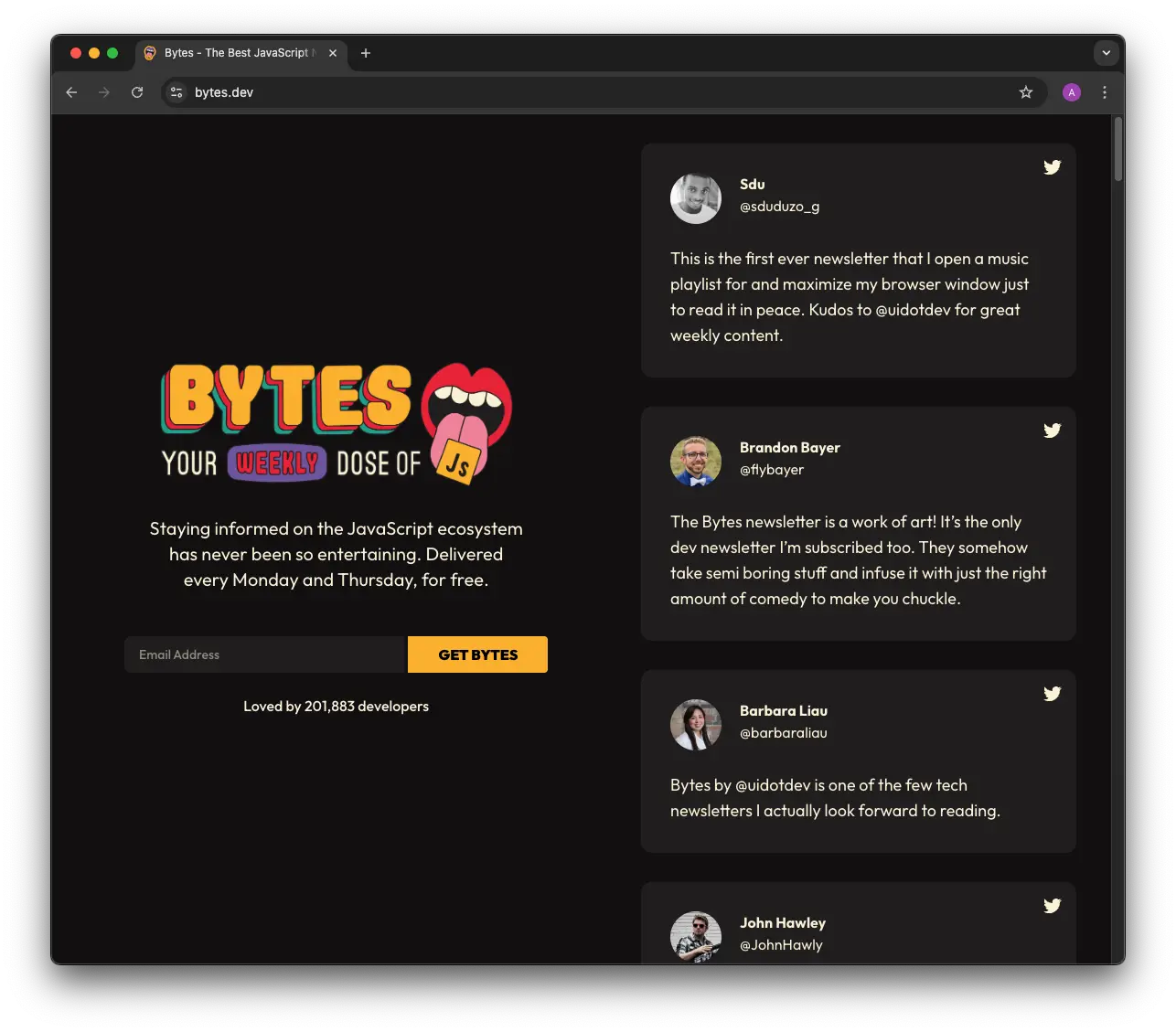
JavaScript Bytes is another favorite in my list of resources. The blog is written with a fun and comical tone, and it covers a wide range of new and emerging technologies, updates to JavaScript libraries, and the latest news in the front-end world.
One thing I really enjoy about each email is the “Spot the Bug” section. It includes JavaScript snippets with small challenges where you either have to find a bug or predict how a piece of code will behave. These challenges keep me sharp and help me stay familiar with the quirks of JavaScript.
This email newsletter is a great way to stay up to date in a constantly evolving world.
JavaScript Weekly
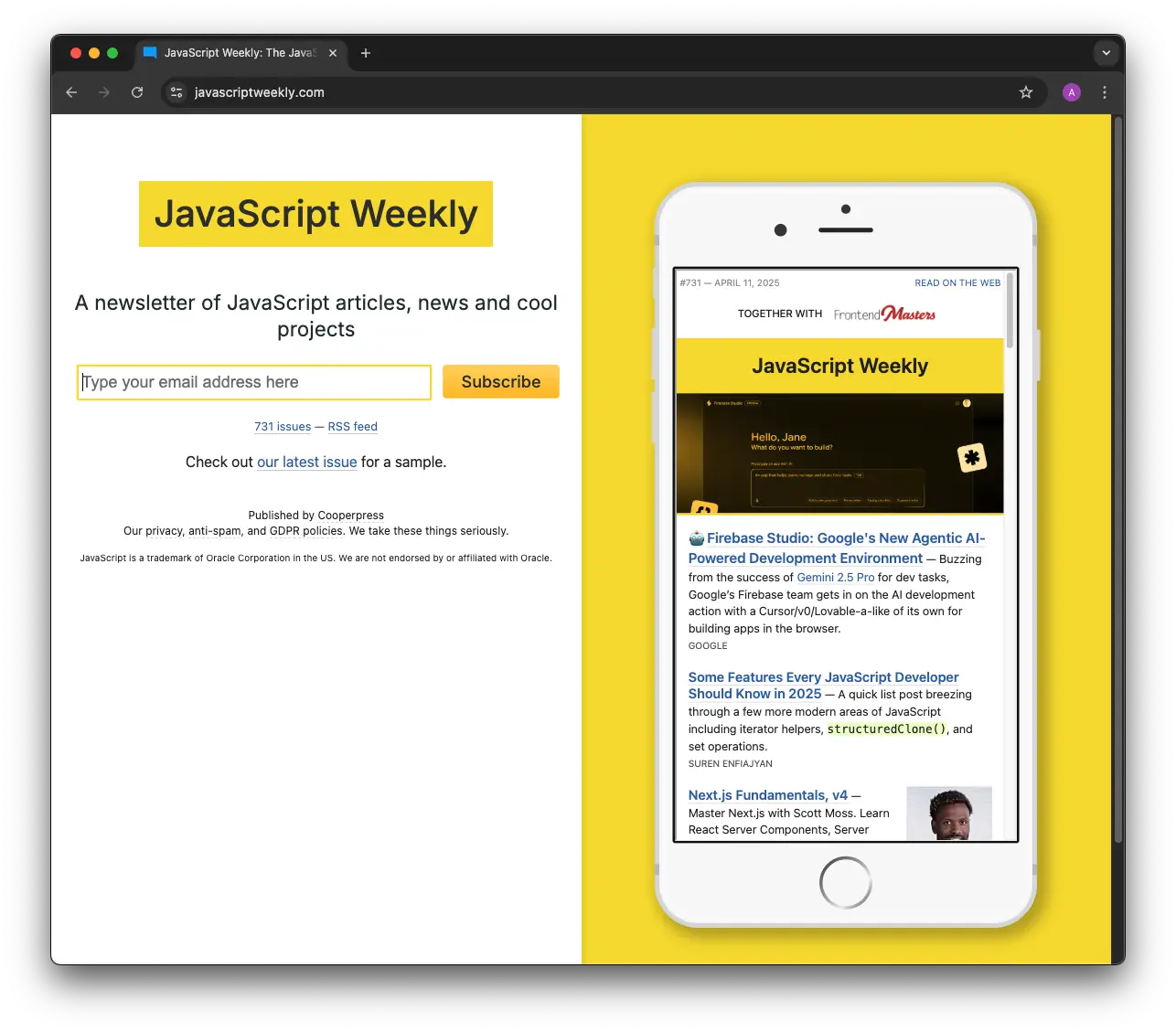
JavaScript Weekly, curated by Peter Cooper, is next on my list. I would compare it more to an educational paper or write-up. The newsletter covers a wide range of topics, but what I appreciate most is its consistent attention to TC39, the group responsible for setting JavaScript standards and deciding which features are being developed and what’s in the pipeline for future releases.
I think it’s incredibly important to stay informed about these updates, and JavaScript Weekly does an excellent job of keeping me in the loop. It also includes more technical content, such as how-to articles on setting up and configuring environments, theoretical pieces, new tools and libraries, system design concepts, and best practices for coding styles and syntax.
Every issue is packed with valuable and informative content, whether you’re just trying to stay current with language updates or looking to deepen your understanding of JavaScript through more advanced concepts. It’s a reliable go-to that delivers both practical knowledge and big-picture insights, making it a must-read for developers at any stage.
ByteByteGo
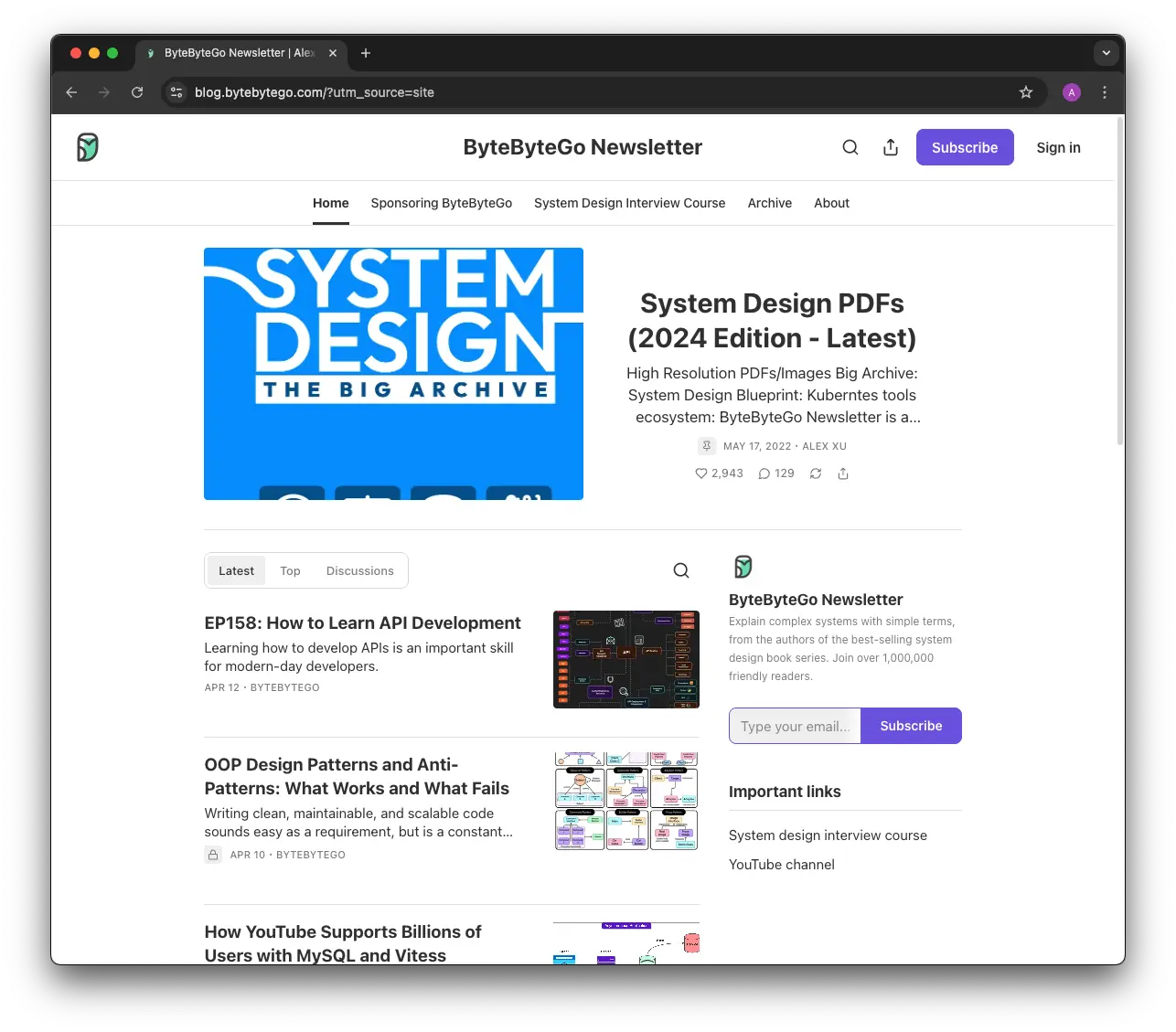
Written by Alex Xu, Byte Byte Go takes a step away from the front-end world and offers a broader view of software development. Alex covers a wide range of topics, including API design, design patterns, and application architecture. One thing I really appreciate about this newsletter is how often he highlights real-world problems faced by large companies and explains the solutions they implemented.
In my experience, there’s a big difference between simply getting something to work and designing it to scale efficiently under heavy loads of data and users. When working locally, it’s easy to overlook these challenges, only to scramble later when a feature hits production and starts showing performance issues. Alex’s breakdowns of how enterprise-level companies solve these problems give me valuable insights into building systems that are resilient and scalable.
It also reminds me just how powerful computers really are when they’re set up and optimized correctly, and how much thoughtful architecture and planning can make or break an application’s performance at scale. Seeing how these large systems are designed and maintained helps me think more critically about my own work. It encourages me to plan ahead, write more maintainable code, and always consider how something might behave under real-world pressure and growth.
Muzli - Design Inspiration
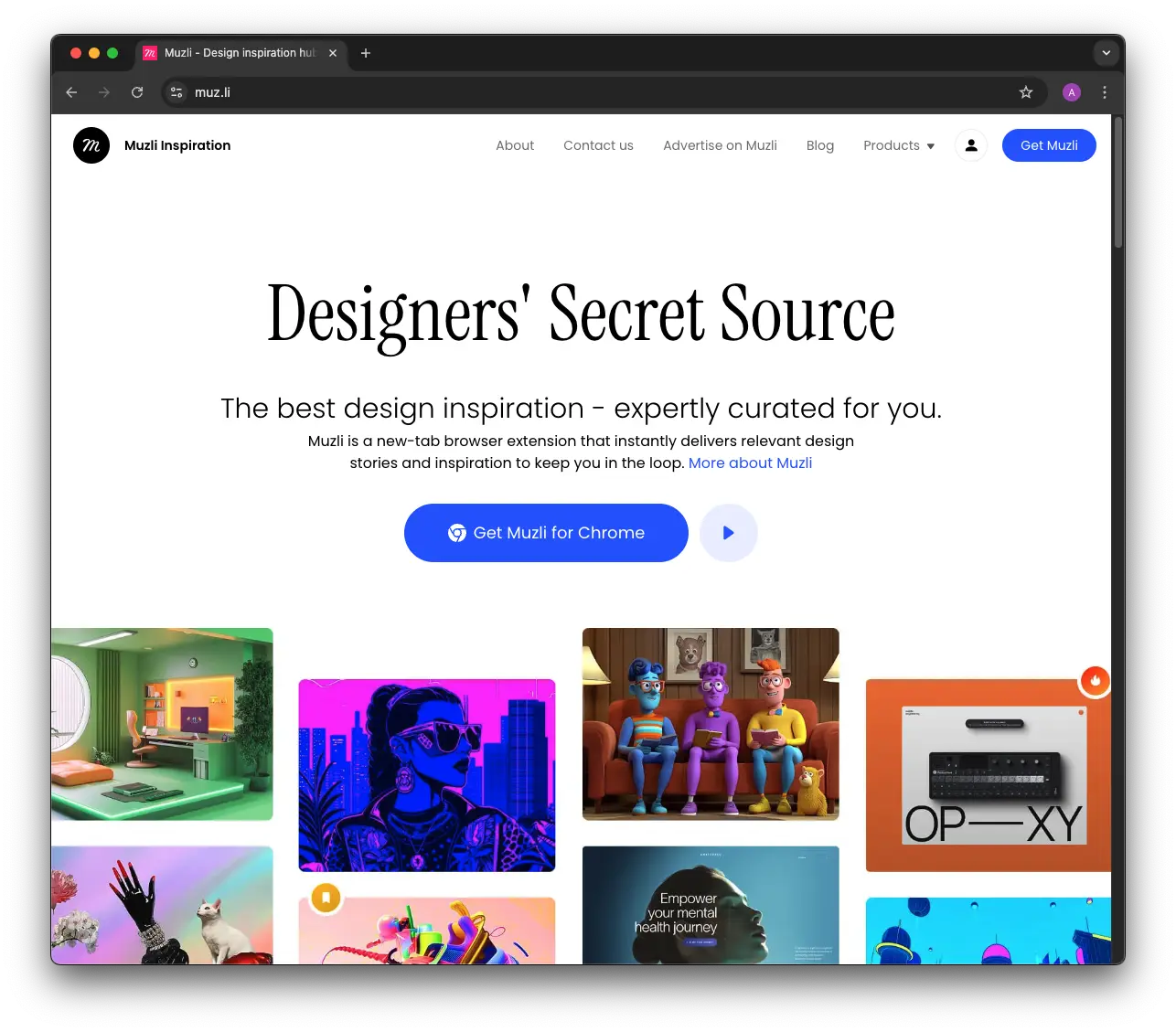
Taking a step back from software development, Muzli is a great resource for graphic design and website design. I went to college and started my career as a graphic designer, so I’ve always had an appreciation for these things. UI application design and design systems are quite different from traditional graphic design. Some of the sites featured on Muzli are highly artistic and specialized, and while they might not always scale well or apply directly to application development, they still offer valuable inspiration.
I think there’s a lot of value in pulling small ideas or stylistic elements from these examples and incorporating them into your own projects. Muzli offers a huge range of design ideas, and you can easily search by specific keywords to spark creativity. They also feature excellent examples of typography and font combinations, which can be incredibly useful when crafting the look and feel of an application.
Syntax Podcast
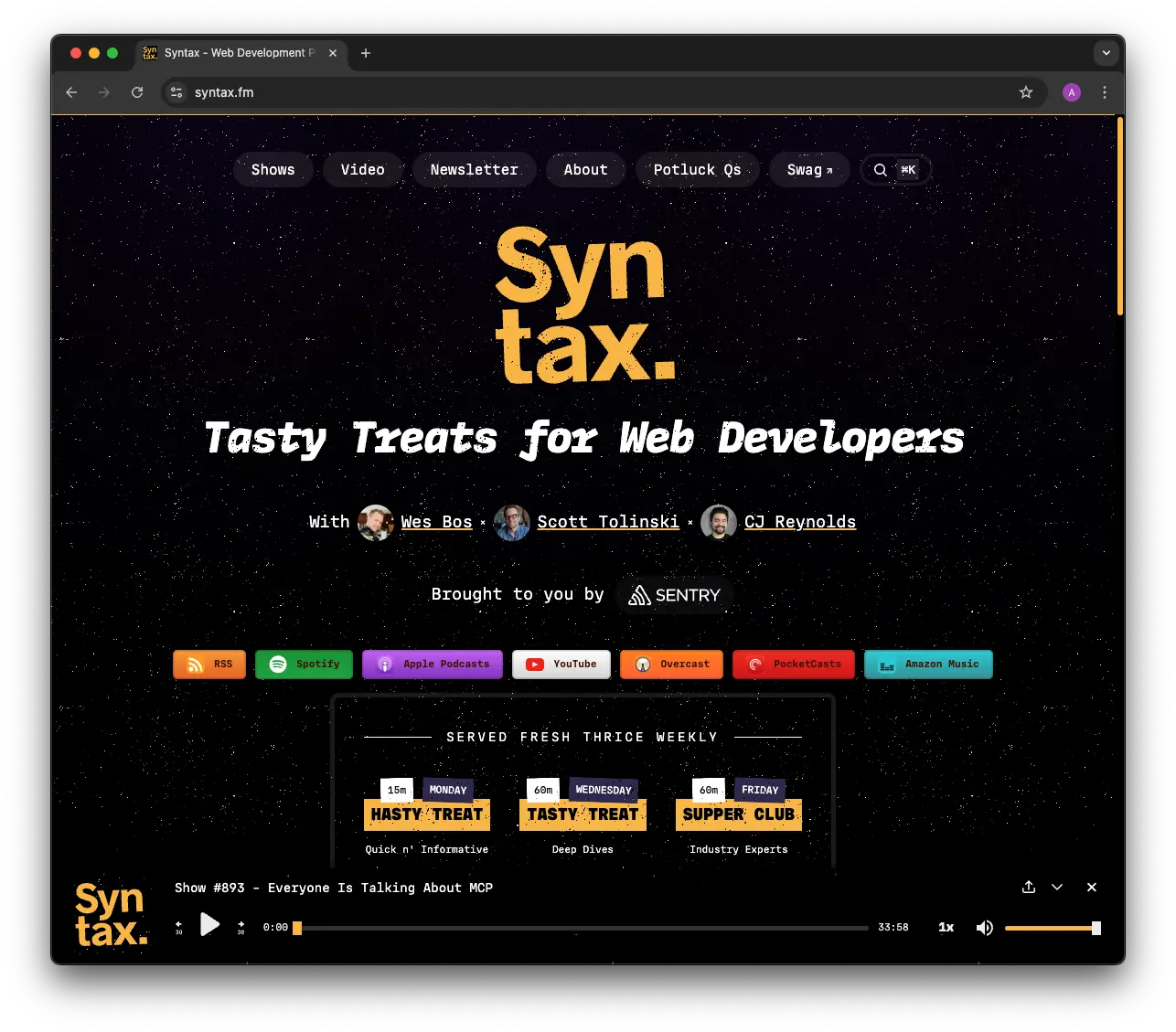
Moving on to podcasts, a favorite of mine is Syntax by Wes Bos and Scott Tolinski. They consistently release a couple of new episodes each week, covering a wide range of topics across both the front-end and back-end worlds. Both Wes and Scott are incredibly knowledgeable, with many years of experience in the industry, and they offer thoughtful opinions on a variety of subjects.
The show is a great way to stay up to date on new libraries, tools, and important updates across the tech landscape. For example, I recently learned on the podcast that the TypeScript team rewrote the compiler in Go, making it ten times faster than the original version. I find value in how timely and relevant their content is.
Beyond the technical discussions, Wes and Scott also have amazing chemistry. Their sense of humor and casual back-and-forth make the episodes enjoyable and easy to listen to. I often find myself laughing at their back and forth, which adds a refreshing element to the show. I highly recommend giving this podcast a listen if you want to stay current with the tech world while having a few laughs along the way.
Backend Banter Podcast
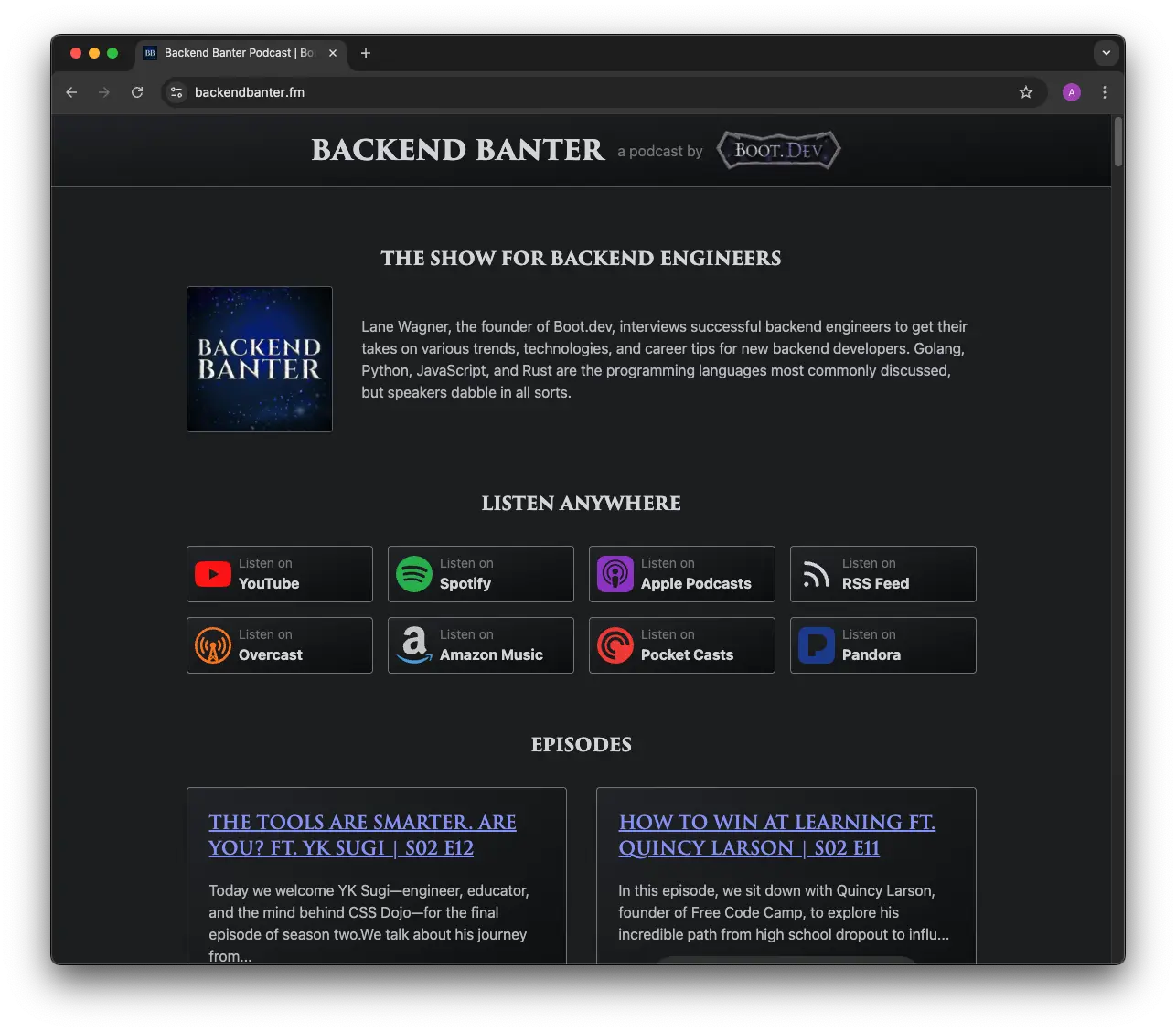
Another podcast on my list is Backend Banter by Lane Wagner, the founder of Boot.dev. It’s a great show that focuses more on backend development. Lane is an experienced Go developer, and I always find it interesting to hear his thoughts on different languages and technologies. He brings on a wide range of guests who cover topics like AI, career growth and development, new technologies, and emerging libraries and languages.
One thing I really enjoy is Lane’s ability to lead engaging conversations. He asks meaningful questions and gives his guests room to share their perspectives. It’s also been fun to watch him grow as a podcaster and continually improve his craft over time.
Listening to Lane inspired me to try Go, and I’ve been really enjoying experimenting with the language. The syntax feels familiar coming from TypeScript, and I like how Go has stronger opinions about structure and style. I owe that spark of curiosity to Lane, and I’m glad I gave it a shot.
Startups for the Rest of Us
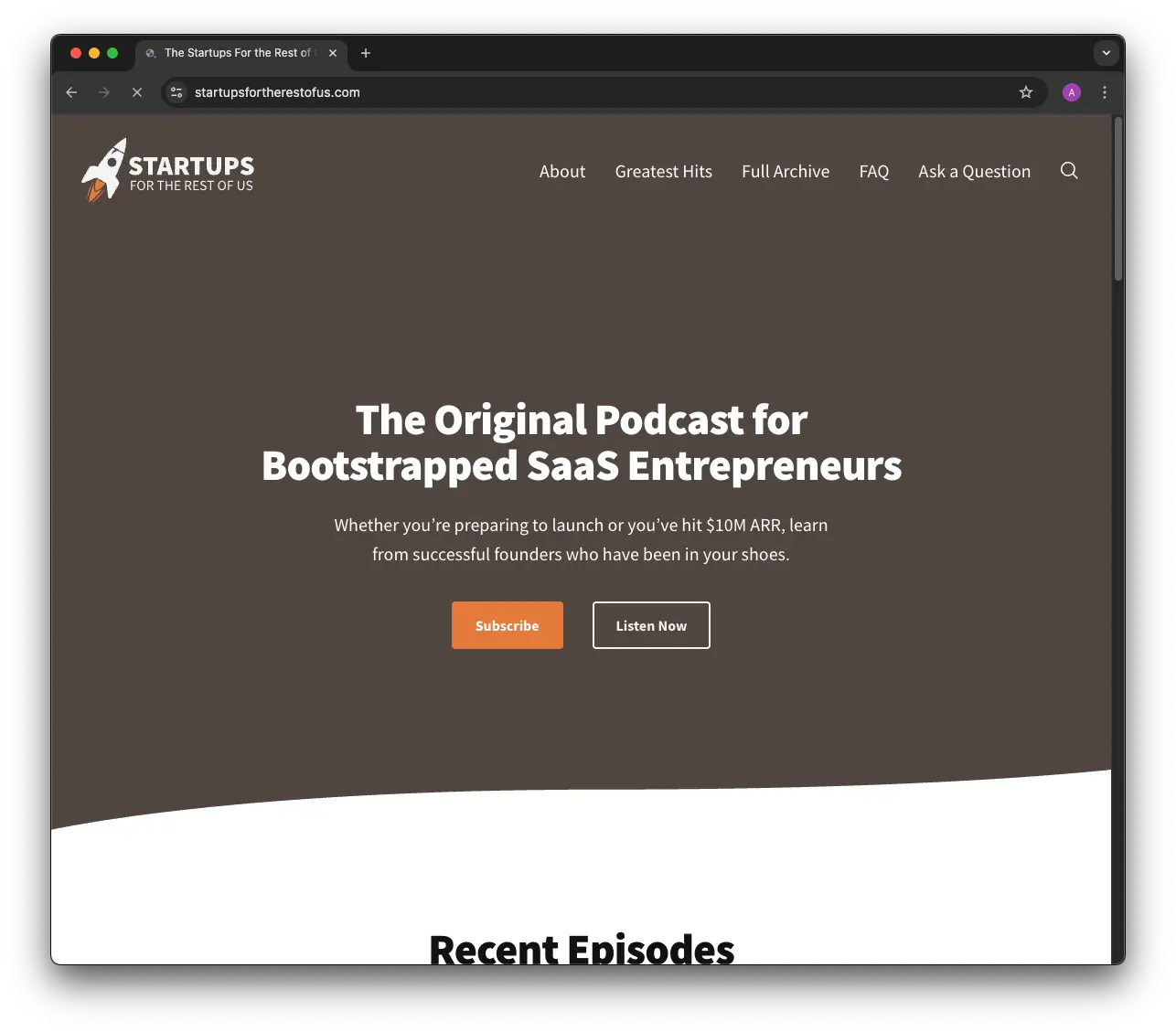
The final podcast and resource on my list is Startups for the Rest of Us, a show about entrepreneurship and building SaaS businesses. Although the main host, Rob Walling, began his career as a software developer, the podcast focuses less on code and more on the journey of starting and running your own business.
Rob features a wide range of guests from different areas of the business world who openly share their successes, failures, and the steps they’ve taken to turn ideas into reality. He also records solo episodes where he answers listener questions and dives into specific topics relevant to entrepreneurs.
What I love most about this podcast is how inspiring it is. It motivates me to keep pushing on my own ideas and explore ways to generate income outside of my regular 9-to-5 job. I’d highly recommend it to anyone who’s interested in entrepreneurship, wants to work for themselves, and is looking for real-world insight into what it takes to make it happen.
Wrapping Up
These resources have become a core part of my routine, helping me grow as a developer and stay connected to the broader tech community. Whether you’re just starting out or looking to level up, I hope you find something here that sparks inspiration or adds value to your workflow. If you have a favorite resource I didn’t mention, I’d love to hear about it.